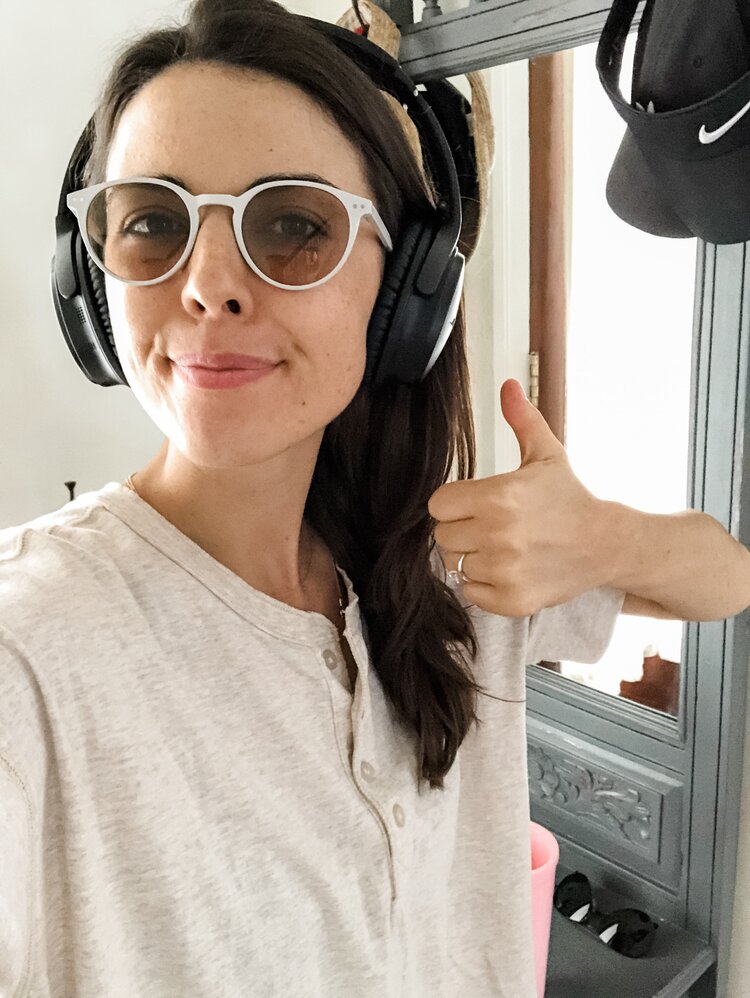As my neurological symptoms associated with chronic Lyme disease and chronic migraine have become more severe, the terms “brain fog” and “fatigue” just feel inadequate as a means to describe what I am experiencing. However, I was recently introduced to the idea of “neuro-fatigue,” and finally felt like I had the words to describe the combination of symptoms that have become my norm so much of the time.
This fatigue is different than tiredness or a lack of physical energy. It stems from sensitivity to stimuli of any kind, and makes outings, errands, phone calls and visiting with friends taxing. It calls for many periods of “rest-time” during daytime hours, and often leaves me homebound and isolated. It can be difficult to identify when entangled with other symptoms of chronic pain, but I can’t express how much doing so has helped me to understand my situation better — I hope it helps you too.
Neuro-fatigue feels disorienting and exhausting. It feels like every thought requires effort. Typing out a text, getting out of bed to get medication from a cabinet, completing a basic task like scheduling an appointment online — it all asks for brainpower that I simply do not have much of the time.
Existing in a body with an exhausted and frayed nervous system feels like I am running on fumes. Accomplishing even the smallest task entails having to push my energetic gas pedal to the floor, all to achieve just the smallest burst of fuel so I can try to push through the exhaustion and get through the task. Most often, I completely “stall out” after I’m done (sometimes even having to stop midway and take a breather) and then I am back to “rest” mode until I can try again.
Some days, it feels like instead of having a normal IV delivering medication or vitamins into my bloodstream; I have an IV in my arm that is sucking my mental and physical stamina directly out of me when I try to do almost anything.
This neuro-fatigue is not remedied by the standard approaches to managing normal fatigue. But it can be temporarily relieved by giving my brain a break through rest. What this rest looks like varies day to day and hour by hour. For me, it always involves soft lighting, limited interaction, reduced stimuli and quieting my nervous system. It most often takes the form of me lying in bed with the curtains pulled and my laptop closed, listening to music, podcasts, meditations or simply resting in quiet.
Sometimes even those restful activities prove too stimulating. I am often baffled by how I can feel alert (not sleepy) and yet fatigued just by “being.” Sometimes even the simple act of breathing feels like loud effort. My limbs feel weak, I drop things and knock things over more easily and merely thinking through basic decisions feels like trying to walk blindfolded, in the dark, without a map, on a trail that is completely overgrown with thick brush with nothing to whack it away and no energy to have been able to do so anyway.
This feeling exists on a spectrum, and described above is how it feels at its worst. When it is less severe, it feels like I am a superhero and I marvel at how incredible it is to be able to live with more clarity and a higher stimuli threshold.
When I am out in the world, neuro-fatigue often presents as dizziness, lightheadedness and sensory overload. I almost feel as if I am tipsy. Objects feel like they’re coming at me quickly and my eyes strain and struggle to take in the world around me. Intense light sensitivity gives me the sensation I’m looking into direct sunlight, constantly. I squint against pain from normal stimuli and it’s hard to focus my vision on any one thing. I watch the people around me existing effortlessly in that same environment and cannot imagine the feeling of ease they seem to exude.
Holding basic conversations becomes painful. I have sharp pain in my eyes while I try to make eye contact during conversations and I find myself diverting them to “bland” things to look at because somehow that is less painful. Everything around me feels louder and I am overwhelmed by a nervous system that shouts out at me saying, “I don’t know what to do, but I can’t do this.”
Many people might think that by just going home and taking a nap, that will solve the problem and my symptoms will disappear. Unfortunately, when my neuro-fatigue is at its worst, my nervous system is too stimulated to nap and the only real solution is to shut down the neurological stimuli and wait. I need to find a dark or softly lit, quiet place and not talk to or interact with anyone.
For someone who has always thrived on social interaction, this is especially isolating and scary. It has taken me many years, much practice and a good number of tears, to accept this as a necessary element of my current reality. I’ve had to learn radical acceptance of a new way of being that completely goes against the way I spent the first 20 years of my life. I’ve had to learn patience with the process and understand that it takes time for the frayed energy pulsing through my nervous system to settle.
The buzzy feeling that sends me looking for shelter commonly turns into a blurry exhausted one once I have settled down. In the final stage, it becomes the all too familiar neuro-fatigue that swallows up every last ounce of my mental energy. This symptom is what makes rest an invaluable part of my self-care and healing. It is why my social life has been slashed and frustratingly often, I have to prioritize time doing nothing in order to do anything.

Neuro-fatigue makes it hard for me to have friends and family visit or stay with us, because even the smallest interactions ask for mental energy that I just don’t have. It’s why I rarely drive, because I don’t trust my brain to stay alert enough to safely handle the stimuli around me. It’s why I have to feel “up to” phone calls with my mom and best friend to just talk about nothing and catch up.
It’s why mindfulness has become a lifeline. When I can’t do anything, I can close my eyes and focus on my breathing and the sensations in my body. I can harness my thoughts and redirect them from fear stories to gentle and loving self talk.
My brain is inflamed and compromised (something I have to remind myself of constantly). A healthy brain is restored by sleep, can handle stimuli at a higher threshold and responds to fatigue with exhaustion.
My brain is hurting (yours may be also). My nervous system is suffering injury and assault from bacterial infection and inflammation. It is also on “red alert” at the slightest sign of pain due to years of unrelenting migraines. Rest looks different for me than it does for a healthy brain and it is up to me to be in charge of respecting that fact.
I could write a whole separate blog (or book) on the next-level debilitation that comes from experiencing neuro-fatigue coupled with chronic severe pain. They feed into each other with fervor and at times feel so utterly demoralizing, it can be hard to hope for better days. There are no words to fully describe the intense physical and mental drain that merely existing can feel like when your body is seemingly crumbling at every turn.
But for today, I just want to give words and validity to these feelings and to every person living in this reality. To share my experience of the weariness and the dense fog that can descend over my mind and soul due to having to cope with neuro-fatigue for months and years on end. It’s easy to become frustrated with a fatigued brain. I desperately wish I could “nap away” the feeling of neuro-fatigue. It’s hard to explain to others and harder to live with.
To those of you living with or who know or love someone living with it too…I send you my heartfelt hope that we will all find a path to healing. I believe that we can, and I hope you do too!

This story originally appeared on Mindful Migraine.

